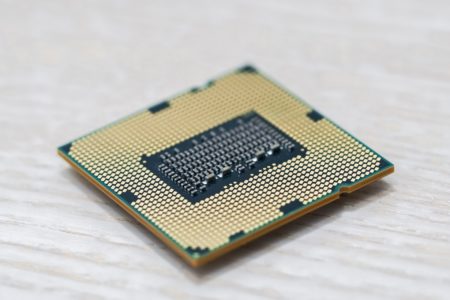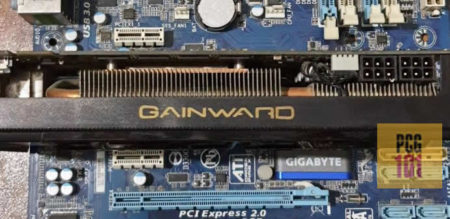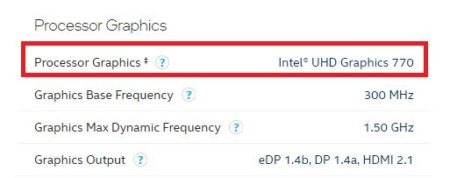A dedicated graphics card is one of the heftiest investments you can make for your PC if you are building one. A dedicated graphics card can add to its overall cost if you buy a laptop.
Hence, asking if you genuinely need expensive graphics cards is logical if you are not a gamer.
The short and simple answer to this question is Yes! You do need a graphics card even if you are not a gamer. Why? Because all PCs need a graphics card to DISPLAY stuff on the monitor screen.
You cannot see anything displayed on your monitor without a graphics card.
The real question is whether an integrated graphics card would suffice or if you need to go for the expensive dedicated graphics card.
Unfortunately, a misconception must be clarified that cards are relevant only for gaming. A good dedicated graphics card is essential for gamers, designers, editors, and design engineers.
But before we look further into the question, “does your PC need a graphics card if it’s not for gaming,” an important technical detail needs to be addressed: the difference between an Integrated vs. a Dedicated graphics card.
The following text thoroughly explores this question and addresses many misconceptions regarding graphics cards.
Read in Detail: Do You Need a Graphics Card for Video Editing?
TABLE OF CONTENTS
Integrated vs. Dedicated Graphics Card
Often people need clarification on the two. The fact of the matter is that ALL PCs have a graphics card. The difference is in whether they have an integrated graphics card or a dedicated graphics card.
ALL PCs Need a Graphics Card To Display Stuff on the Monitor Screen. The Question is Whether You Need a Low Key Integrated or a Powerful Dedicated Graphics Card.
Also Read: How to Check What Integrated Graphics Do I Have?
Integrated Graphics Cards (iGPU)

An integrated graphics card is a graphics card that comes coupled with a processor. It is not a separate component.
These are often ideal for economical/budget systems or for systems that do not have a robust graphic rendering requirement.
iGPU is much weaker than the mid-range or high-end dedicated graphics card.
They are unsuitable for gaming and can only be used for casual editing.
Also Read: Is Integrated Graphics Card Good?
Dedicated Graphics Card (aka Discrete Graphics Cards)

These are standalone components that plug into the PCIe slots of your PC.
They are often large and depending on how powerful the dedicated graphics card is, they can get quite expensive.
AAA gaming and professional use of design and editing software require powerful dedicated graphics cards.
Also, read: Where is the Graphics Card Located?
So Does Your PC Need a Graphics Card If It’s Not for Gaming?
If you are talking about a dedicated graphics card, then NO, you DO NOT need a DEDICATED graphics card if your PC is not for gaming.
However, you need an INTEGRATED graphics card as a bare minimum on your CPU.
Again, integrated graphics cards are coupled with the CPU.
Also Read: Do You Need a Graphics Card for Photo Editing?
BEWARE: Not ALL CPUs Have Integrated Graphics
As mentioned earlier, you need an integrated graphics card as a bare minimum for your PC/monitor to display stuff.
So, if you opt not to invest in a dedicated graphics card for your PC, you will need to invest in a CPU that offers an iGPU.
This is particularly important if you are building your PC.
Intel CPU With “F” Suffix Lack an Integrated Graphics Card
All Intel CPUs with the “F” Suffix does not feature an integrated graphics card. Examples include Intel Core i5-10600KF and Intel Core i7-11700F.
If you have an “F” series Intel CPU, you must get a dedicated graphics card to add monitor support to your PC.
Only AMD CPUs with the “G” Suffix Have an iGPU
As far as AMD goes, the opposite is the case. Only a select few CPUs with the “G” suffix have the iGPU.
These include AMD Ryzen 3 3200G, AMD Ryzen 5 5600G, etc.
Hence if you need to add monitor display support to your PC without investing in a dedicated GPU for an AMD build, you must get a CPU with the ‘G’ Suffix.
Also Read: Does Ryzen Have Integrated Graphics?
How to Know if Your CPU Has an Integrated Graphics Card
The easiest way to check whether your CPU has an integrated graphics card is to look it up online.
A simple search for it should reveal its overall specs, including whether it has an iGPU.

For instance, in the above specs for Intel Core i7-12700K, you can see that it offers a dedicated Intel UHD Graphics 770 iGPU.
Also Read: How to Disable Integrated Graphics Card?
Do Motherboards Have Onboard Graphics?
No, motherboards do not have onboard graphics. There was a time when they used to, but no more.
All the video output ports located on the back I/O panel of your motherboard are powered by the iGPU found on the CPU.

Let me repeat this (because it is essential) If your CPU does not have an iGPU, the back I/O ports on your motherboard will not work!
I have an in-depth article on this: Do Motherboards Have Integrated Graphics?
The Motherboard Must Have a Video Output Port Too
Having integrated graphics is just one part of the equation. To connect your monitor, your motherboard must have a video output port, like a DVI, VGA, HDMI, DP port, etc.
If your CPU has an iGPU, BUT your motherboard lacks a video output port, you must invest in a dedicated graphics card.
Also Read:
Not all Integrated Graphics Cards are Made Equally
We have already established that all PCs need an iGPU to display video.
iGPUs are considered an affordable way to enable graphics processing capability for your PC.
They are regarded as inferior to dedicated GPUs. However, it should be noted that not ALL iGPUs are created equally.
So much so that some of the newer iGPUs can give entry-level dedicated GPUs a run for their money. Thus making certain iGPUs suitable not just for light gaming but also for using professional editing and designing software.
We have a dedicated build guide for this:
Build Guide for Gaming PC Without Graphics Card
The following chart shows how some integrated GPUs stack up compared to dedicated graphics cards.
G3D Mark Scores
| GPU | G3D Mark | Notes |
| Intel UHD 630 | 1395 | As found on 8-10th Gen Intel CPUs |
| Nvidia GeForce GT 740 (MSRP $79) | 1543 | Dedicated GPU Basic |
| Intel UHD 750 | 1684 | As found on 11th Gen+ Intel CPUs |
| AMD Radeon Vega 3 (2018 Version) | 1071 | AMD 2000 Series APU |
| AMD Radeon Vega 6 (2018 Version) | 1274 | AMD 2000 Series APU |
| AMD Radeon Vega 8 (2018 Version) | 1704 | AMD 2000 Series APU |
| Intel UHD 770 | 1928 | As Found on 12th Gen Intel CPUs. |
| Intel Iris Pro 580 | 2044 | Found on premium laptops. |
| AMD Radeon Vega 11 (2018 Version) | 2139 | AMD 2000 Series APU |
| Nvidia GeForce GT 1030 ($79) | 2613 | Dedicated GPU Entry Level |
| AMD Ryzen 5 5600G Vega 7 Graphics | 2639 | Integrated as found on the Ryzen 5600G |
| AMD Ryzen 7 5700G Vega 8 Graphics | 2708 | Integrated as found on the Ryzen 5700G |
| AMD Radeon RX 550 ($79) | 2764 | Dedicated GPU Entry Level |
In this chart, a suitable integrated GPU can save you from investing in an entry-level dedicated graphics card.
Of course, even the best iGPUs come far from the top-of-the-line dedicated graphics cards. NVIDIA RTX 3080Ti, for instance, has a G3D Mark score of a whopping 26,639!
Also Read: How to Use Motherboard HDMI with a Dedicated Graphics Card
Do You Need a Graphics Card For Your LAPTOP if You Are Not a Gamer?
The same concept applies here to getting a laptop. A dedicated graphics card can add to the overall cost of the computer.
Hence if you are neither a gamer nor a professional graphic designer or a video editor, you do not need a powerful dedicated graphics card.
The iGPU found on the laptop CPU should be sufficient enough for you.
Also Read: What CPU is Compatible With My Motherboard?
Final Words
So the question, “does your PC need graphics if it’s not for gaming?” should be rephrased as “do you need an iGPU or a dedicated GPU?”
This is because all PCs require some GPU for graphics processing and enabling video output support to your monitor screen.
So if you are not a gamer, you can make do without a dedicated GPU that tends to have expensive standalone components. However, you must ensure your CPU has an iGPU, particularly if you are building a PC.
You can get a laptop without a dedicated GPU if the PC is a laptop. A laptop lacking a dedicated GPU would undoubtedly have a CPU with an iGPU for video processing.
FREQUENTLY ASKED QUESTIONS
1. Can I upgrade my PC to add a graphics card later if I decide I need one for non-gaming use?
Yes, it is possible to upgrade your PC with a graphics card if you decide that you need one for non-gaming use. However, it is important to check whether your computer has a compatible PCIe slot and sufficient power supply to support the graphics card.
2. Will a graphics card improve the performance of my non-gaming applications?
Yes, a graphics card can improve the performance of non-gaming applications that require intensive visual processing, such as video editing, graphic design, and 3D modeling. A graphics card can help to reduce the load on the CPU and improve the speed and quality of rendering.
3. How much should I expect to spend on a graphics card for non-gaming use?
The cost of a graphics card for non-gaming use can vary depending on the level of performance required.
Entry-level graphics cards for non-gaming use can cost around $50-$100, while mid-range and high-end graphics cards for professional applications can cost several hundred dollars or even more than $1,000.
It is important to consider your specific needs and budget when choosing a graphics card for non-gaming use.
Also Read:
